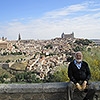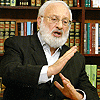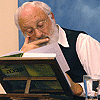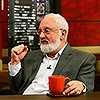In my regular column in Haaretz, my new article: “Hanukkah, or Why We Celebrate a Civil War“
Unity is how we defeat the Hellenistic separatism within us, and become modern-day Maccabees, warriors of the light.

Next week we (Jews who observe Jewish festivals) will celebrate Hanukkah, a.k.a., the Festival of Lights. But the miracle of finding a tiny jar of oil that should have held just enough oil to light the menorah for only one day, yet it lit for eight, is only the end of the story. Its beginning was much grimmer and bloodier, yet it also underscores the eternal battle of the Jew—to preserve the values of brotherhood and mutual responsibility above all else.
Our mission, the legacy of our ancestors to bring the light of unity to the world
In the year 167 BC, a Hellenized Jew stepped forward to offer a sacrifice to an idol in the worship place of the priest, Mattathias the Hasmonean. This was a routine procedure, part of an orchestrated campaign run by the Seleucid Empire to force the Hellenistic culture and belief system on the Jewish people. To their aid, the Seleucids used Jews who were taken by the charm of the Greek culture and philosophy to infuse the Hellenistic culture into Jewish life and force it on those who did not want it. But the Seleucids and their accomplices had not met Mattathias before. As the Hellenized Jew stepped forward in an attempt to carry out the government official’s order, Mattathias rose and slew both the Jew and the official.
Fearing the government’s retribution, Mattathias took his five sons and together they fled to the mountains surrounding their city, Modiin. There they could protect themselves while inflicting more casualties on the Hellenists.
Hearing of Mattathias’ act of defiance, Jewish dissidents began to stream toward the mountains to join Mattathias and his sons in their struggle over the fate of Judaism. Thus began the revolt of the Hasmoneans.
The Jewish Civil War
We may not like to think of our joyous Hanukkah festival in such dismal terms, but the revolt of the Maccabees was not against the Greeks, as Hanukkah children songs describe, but against our own rogue brothers. It was a civil war. For at least the first year of the revolt, the fighting hardly targeted Seleucid soldiers. The majority of fighting took place between the Maccabees, as the Hasmoneans and their troops were called, and the Mityavnim—Jews who espoused the Hellenistic culture or converted into the pagan Greek belief system. Only much later, after the Mityavnim were defeated, did the Seleucid armies join them in an attempt to crush the Maccabees.
Why a Jew Would Fight a Jew
Contrary to what many in our tribe like to think, our nation is not like any other. Maimonides tells us (Mishneh Torah, Chapter 1) that when Abraham fled from Babylon, he did so because he realized that brotherhood was the only remedy to mend the ruptures in his homeland, yet Nimrod, King of Babylon, persecuted him for his conviction.
Centuries later, Moses officially united us into a nation when we committed to love each other as ourselves and be “as one man with one heart.” Without this commitment, we are not Jews; we return to being the individualistic outcasts who fled their home tribes and have not yet found the uniting principles of mercy and love of others that will turn them into a nation. Without these tenets, we become each other’s enemies.
The war between the Maccabees and the Hellenized Jews is never ending. Within every Jew there is a Hellenist.
Yet, love of others is unnatural. The Torah tells us that “Sin crouches at the door” (Gen 4:7). Since our inception, we have had to fight the evil inclination in our midst. There have always been members of our nation who renounced the way of brotherhood and opted for the path of selfishness. Still, if we abandon the legacy of Abraham, Isaac, Jacob and Moses, who will be a light unto nations? Who will show the world that when egoism reigns, as it does today, the only remedy for our society is to cover it with love of others?
We must remember that the whole of our Torah, as Rabbi Akiva taught us, is “love your neighbor as yourself.” The Talmud also writes (Masechet Shabbat, 31a) that when a proselyte came to Hillel and asked to be taught Torah, Hillel replied, “That which you hate, do not do unto your neighbor. This is the whole of the Torah.”
Therefore, the war between the Maccabees and the Hellenists was not over land. It was about maintaining the Jewish adherence to the Torah—the law of brotherhood. The Jews who chose Hellenism abandoned that law in favor of worshipping the ego, competition, and power, and wanted to impose their dogma on the Jews who remained authentic.
Had the Jews succumbed to the agenda of the Mityavnim, there would have been no one left to show the world the path of mutual responsibility and care. This, in turn, would have denied the world of an example that it is possible to transcend the ego and unite, and the world would have been doomed to destruction by ego-driven wars.
For this reason, the Hasmoneans had no choice but to destroy those Jews who wished to prevent their brethren from fulfilling their task—to be “a light unto nations” and to show the way to unity. The victory we celebrate on Hanukkah is not over the land we reclaimed from the Seleucids. We celebrate our victory over those among us who wished to deny the world of a shot at unity, a shot at lasting happiness and peace.
The Hellenist Within Us
The war between the Maccabees and the Mityavnim is never ending. Within every Jew there is a Hellenist whispering that it is better not to unite and be like everyone else, chasing egoistic pleasures. After all, isn’t this the way of nature?
Hanukkah reminds us we must never stop fighting our internal Hellenists. The history of our people proves that if we give up on unity, hatred will prevail. The victory of the Hasmoneans did not give Israel a lasting peace. Less than two centuries after their heroic triumph, unfounded hatred conquered even the best of us and inflicted the ruin of the Temple and our exile from our land.
Yet, our mission, the legacy of our ancestors to bring the light of unity to the world, has not changed or waned over the years. As I have shown in many of my writings, the nations sense that their inability to be at peace with one another is our fault. They hate us for their hatred of each other, and even the most flawless reasoning will not convince them otherwise. You cannot reason with a gut feeling.
Today’s world needs unity more than it needs clean air, and it really needs clean air. The more people’s relationships deteriorate on all levels of human interaction, the more they will blame us for it. We have been, are, and always will be the chosen people—not to dominate the world in any condescending way, but to lovingly introduce it to the method of connection through our personal example.
The changes in our world are accelerating exponentially. We are growing more vicious and violent by the minute. No one knows when an all-out war will erupt, but the risk of an eruption is growing ever more imminent. This Hanukkah, the Festival of Lights, we must remind ourselves that the light the world needs now is unity, and that we are the ones called upon to light it.
In these days of high political tensions, our tribe is more separated than ever. Yet, this is also our chance to choose whether we want to become selfish Hellenists or caring Maccabees. We are the ones who must light the flame of unity among us and put it on our windowsills for all to see and follow suit.
Brotherhood is how we defeat the Hellenistic separatism within us and among us. This is also how we learn to love our neighbors as ourselves, and how we become modern-day Maccabees, warriors of the light.
May we have a happy and united Hanukkah!
[199244]
From Ynet article 12/22/16
Filed under: Holidays, New Publications - No Comments →
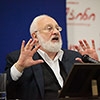 Question: What does the Creator get through the deception of our egoistic feelings in the imaginary reality that He shows us?
Question: What does the Creator get through the deception of our egoistic feelings in the imaginary reality that He shows us?
